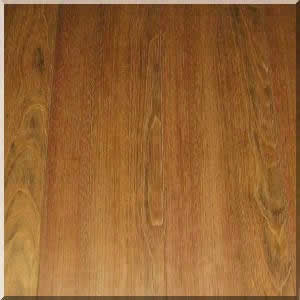Common trade names: Brazilian Cherry, Jatoba
Genus: Hymenaea courbaril, Hymenaea resinifera
Janka Hardness (pounds-force): 2820
Description: Jatoba is referred to popularly as Brazilian Cherry, but it is in not related to the Cherry species commonly used in North America. It tends to darken with age. The grain is generally pretty plain, with hues ranging from light orange-brown to a deeper red-brown tone. Has a medium texture and its pores are relatively large.
Location: Mexico through South America
Common Aliases: Guapinol, Brazilian Cherry, Colorado, Jatoba trapuca, Jatoba verdadeiro, Simiri
Performance: Take care when planing Jatoba, as the interlocking grain patterns tnd to tear over time. It’s considered relatively difficult to work due to a combination of density and the grain pattern. Jatoba is very durable to rot resistance. Additionally, Jatoba features very high insect resistance, though there is evidence that marine borers can inflict harm on the wood. Regardless, it is stiff, strong, and hard, and is among the most durable of all marketable woods.
Acclimation: Please, always properly store and set aside your lumber! We can’t stress enough the importance of just a little patience when receiving your order. For air drying, simply allow a half-inch or so among parallel planks stacked and spaced by level. It’s that easy, and in two or so weeks’ time, the lumber is ready for installation in your climate!
Common Uses: Very commonly used domestically as an interior flooring. Other uses include furniture building, cabinetry, shipbuilding, turnings, and virtually any other woodworking project requiring a hard and durable species.
From: The Wood Database
Common Name(s): Jatoba, Brazilian Cherry
Scientific Name: Hymenaea courbaril
Distribution: Central America, southern Mexico, northern South America, and the West Indies
Tree Size: 100 ft (30 m) tall, 2-4 ft (.6-1.2 m) trunk diameter
Average Dried Weight: 62 lbs/ft3 (990 kg/m3)
Basic Specific Gravity: .77
Hardness: 2,820 lbf (12,540 N)
Rupture Strength: 23,430 lbf/in2 (161,600 kPa)
Elastic Strength: 2,717,000 lbf/in2 (18,740 MPa)
Crushing Strength: 11,860 lbf/in2 (81.8 MPa)
Shrinkage: Radial: 4.5%, Tangential: 8.5%, Volumetric: 12.7%, T/R Ratio: 1.9
